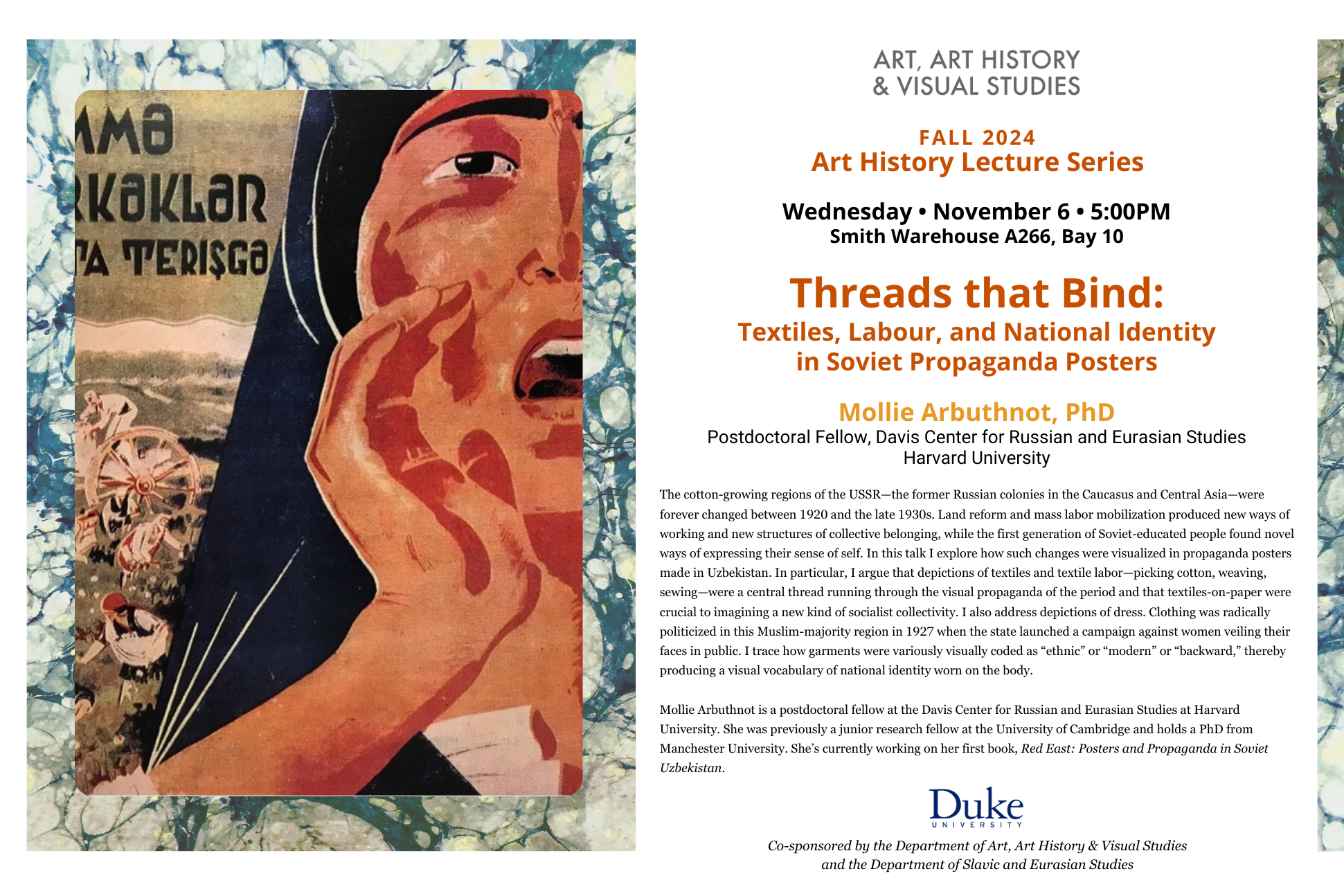“Threads that Bind: Textiles, Labour, and National Identity in Soviet Propaganda Posters”

The cotton-growing regions of the USSR-the former Russian colonies in the Caucasus and Central Asia-were forever changed between 1920 and the late 1930s. Land reform and mass labor mobilization produced new ways of working and new structures of collective belonging, while the first generation of Soviet-educated people found novel ways of expressing their sense of self. In this talk I explore how such changes were visualized in propaganda posters made in Uzbekistan. In particular, I argue that depictions of textiles and textile labor-picking cotton, weaving,
sewing-were a central thread running through the visual propaganda of the period and that textiles-on-paper were crucial to imagining a new kind of socialist collectivity. I also address depictions of dress. Clothing was radically
politicized in this Muslim-majority region in 1927 when the state launched a campaign against women veiling their faces in public. I trace how garments were variously visually coded as "ethnic" or "modern" or "backward," thereby
producing a visual vocabulary of national identity worn on the body.
Mollie Arbuthnot is a postdoctoral fellow at the Davis Center for Russian and Eurasian Studies at Harvard University. She was previously a junior research fellow at the University of Cambridge and holds a PhD from Manchester University. She's currently working on her first book, Red East: Posters and Propaganda in Soviet Uzbekistan.
Talk is free and open to the public.
Co-sponsored by the Department of Art, Art History & Visual Studies, the Department of Slavic and Eurasian Studies and the Franklin Humanities Institute.






